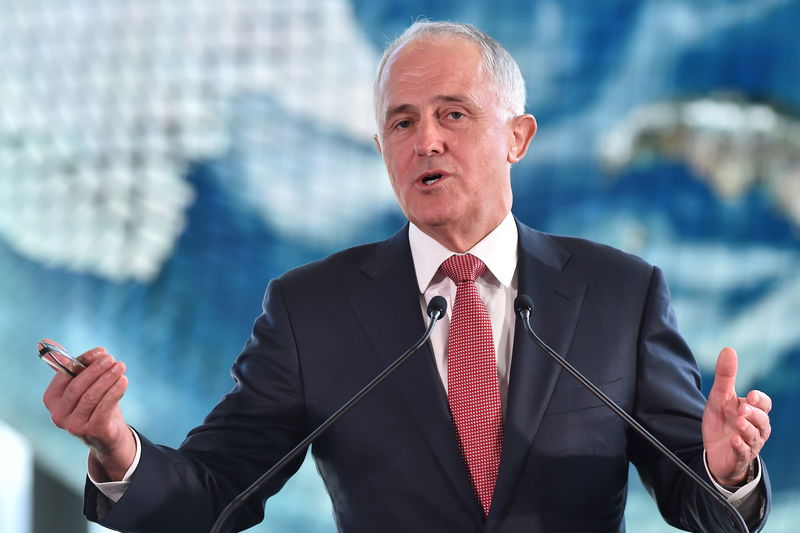By Jane Wardell and Jonathan Barrett
SYDNEY, July 4 (Reuters) - Vote counting is scheduled to resume on Monday in a dramatic Australian federal election that failed to produce a clear winner on the weekend, raising the prospect of prolonged political and economic instability.
The exceptionally close vote leaves Prime Minister Malcolm Turnbull's centre-right Liberal Party-led coalition in a precarious position, potentially needing the support of independent and minor parties to reform government.
It has also opened the door to the possibility, albeit less likely, that the main opposition Labor Party could win enough backing from the smaller parties to form government itself.
Turnbull said on Sunday he remained "quietly confident" of returning his coalition to power for another three-year term but the key independents who have become the powerbrokers after winning a greater share of the vote than anticipated are yet to declare their allegiance for either side.
With counting expected to take several days, possibly weeks, the uncertainty is likely to put downward pressure on the Australian dollar and the share market as analysts warned Australia's triple A credit rating could be at risk. Turnbull and opposition Labor Party leader Bill Shorten began talking on Sunday with the independents, whose election campaigns ranged from anti-foreign ownership and economic protectionism to anti-gambling and policies to improve the treatment of asylum seekers.
The election was meant to put a line under a period of political turmoil which has seen four prime ministers in three years. Instead it has left a power vacuum in Canberra and fuelled talk of a challenge to Turnbull's leadership of the Liberal Party, less than a year after he ousted then prime minister Tony Abbott in a party-room coup.
"I can promise all Australians that we will dedicate our efforts to ensuring that the state of new parliament is resolved without division or rancour," Turnbull, whose coalition will rule as a caretaker government in the interim, said on Sunday.
If the coalition fails to form a government, it would be the first time in 85 years an Australian ruling party has lost power after its first term in office.
Official electoral data for the House of Representatives showed a 3.4 percent swing away from the coalition government, with about two-thirds of votes counted before counting was paused early on Sunday.
Electoral Commission projections give the coalition 67 seats in the 150-seat lower house, against Labor's 71 and five to independents and the Greens. A further seven seats were in the balance.
The Liberal-National coalition and Labor Party require 76 seats in the House of Representatives to form majority government.
Small parties are also likely to do well in the Senate, with Pauline Hanson's One Nation on track to win between two and four seats, marking the return of the right-wing anti-immigration activist to parliament after an almost 20-year absence.
